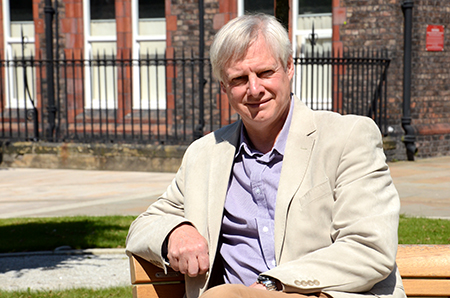 Professor Richard Bentall: “I am honoured to be elected a fellow of the British Academy”
Professor Richard Bentall: “I am honoured to be elected a fellow of the British Academy”
Professor Richard Bentall, clinical psychologist in the Institute of Psychology, Health and Society, has been elected as a Fellow of the British Academy.
A total of 42 highly distinguished UK academics were awarded Fellowships in recognition of their outstanding research from across the humanities and social sciences. Professor Bentall is one of only three psychologists who received this recognition.
Honoured
Professor Bentall said: “I am honoured to be elected a fellow of the British Academy.
“I think this award recognises the enormous progress which researchers in the UK have achieved in understanding the psychological processes involved in severe mental illness over the last 30 years.
“My own work in this area would not have been possible without the support of a large number of dedicated colleagues, not least my many talented PhD students.”
“They play a vital role in the work of the Academy, encouraging younger researchers, engaging in public discussion of the great issues and ideas of our and other times, contributing to policy reports and publications, and helping to select researchers and research projects for funding support.”
Professor Bentall has been researching the psychological mechanisms involved in specific symptoms (hallucinations, paranoid beliefs, negative symptoms and manic states), mainly using psychological measures but more recently also using physiological measures (EEG, fMRI and cortisol) since the 1980s.
He has also been interested in the way that these mechanisms, and hence these symptoms, are affected by adverse life experiences such as childhood trauma, experiences of victimisation, or experiences of social inequality.
Critic of diagnostic systems
He is a critic of diagnostic systems such as the DSM, and specifically of categories such as ‘schizophrenia’ and ‘bipolar disorder’, arguing that these have very little scientific or clinical utility.
He has published two books, Madness explained: Psychosis and Human Nature (Penguin, 2003) and Doctoring the Mind (Penguin, 2009), in which he argues that it is possible to construct a completely coherent account of severe mental illness based on these principles.
Richard has also been involved in a number of large scale clinical trials of psychological treatments for people with severe mental illness, including patients who have received diagnoses of schizophrenia and bipolar disorder or who are showing signs of being at high risk of developing mental illness.
